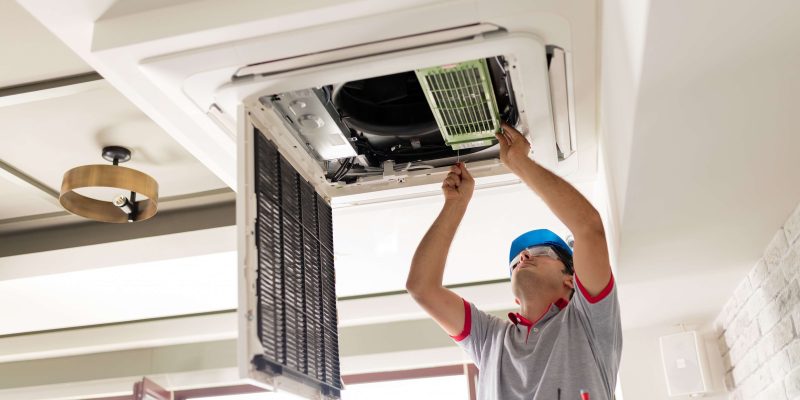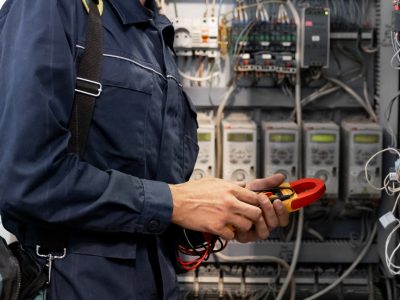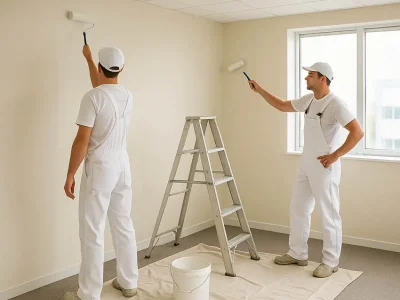1. Select the right AC unit for your space
The first step to a successful installation is selecting the right air conditioner for your home. A unit that is too small or large can result in poor cooling, increased energy costs and inefficiency. When choosing an AC unit, there are several factors to consider:
Determine Your cooling needs: Calculate your cooling load to determine how much AC you will need. Consider factors like the size of your house, the number and size of rooms, the ceiling height, insulation and window sizes and locations, as well as the local climate. Online calculators are available or you can consult a professional for a detailed calculation.
Energy Efficient: Search for units that have a high Seasonal Energy Efficient Ratio (SEER). Higher SEER ratings indicate better energy efficiency. This can help you save money over time on your utility bills. The units that are more energy-efficient tend to be environmentally-friendly.
Type AC Unit: AC units come in many different types, such as central air conditioners, mini-splits, portable units, window units and ductless systems. Each type of AC unit has advantages and disadvantages depending on the needs and layout of your home. Central air conditioning, for example, is great for cooling a whole house. Ductless systems, on the other hand, are ideal for homes that don’t have ductwork, or for cooling individual rooms.
Warranty and Brand: Select a brand that is known for its reliability and durability. Also, take into account the warranty provided by the manufacturer. A good warranty will provide you with peace of mind as well as protection from potential defects.
2. Hire an HVAC Professional
The technician who performs the installation is a major factor in the quality of the air conditioning system. It is important to hire a HVAC (Heating Ventilation and Air Conditioning) expert for an efficient and proper installation. How to choose the right professional
Research & Recommendations: Begin by reading online reviews and researching HVAC companies in your area. You can ask your friends, family or neighbors to share their recommendations. Choose companies that have positive feedback from customers and a track record of high-quality installations.
Check Credentials: Verify the HVAC technician’s or company’s license, insurance, and certification. To demonstrate their knowledge and competence, many technicians must have specific certifications.
Compare Multiple Quotes: Request quotes from three or more HVAC contractors to compare prices, warranties, and services. Beware of low-cost quotes that may be indicative of substandard workmanship or inferior materials.
Ask questions: Inquire about the technician’s experience, installation, and potential problems specific to your house. Professionals who are transparent and knowledgeable will answer all your questions.
Service Contract: You may want to consider entering into a contract with a HVAC company that will provide ongoing maintenance and assistance. Regular maintenance will help to keep your AC in top condition and prolong its life.
3. Ensure Proper Installation Techniques
Installing the AC unit correctly is essential. Even the best AC units will not work well if they are not installed properly. The installation technique is vital to the efficiency and longevity of your AC system. Proper AC installation involves several key elements.
Placement of Outdoor Unit: For maximum efficiency, the outdoor unit (condenser), should be located on a level, stable surface. The unit should be able to move freely on all sides in order to maintain proper airflow. Avoid placing it near obstructions or debris such as trees and bushes.
Seal and Insulate Ductwork: If you have ductwork in your system, make sure it is sealed and insulated properly. Poorly insulated or leaky ducts may lead to energy losses and reduced cooling efficiency. To prevent air leaks, use high-quality materials with professional sealing techniques.
Correct Refrigerant levels: You must charge the AC unit with the exact amount of refrigerant that the manufacturer specifies. The wrong refrigerant level can cause inefficient cooling and increase energy consumption. It could also damage the unit. A technician with the right qualifications will accurately measure and adjust refrigerant levels.
Place the Thermostat Accurately: Install your thermostat in a central position, away from heat sources, direct sunlight and drafts. This will ensure accurate temperature readings as well as efficient operation of your AC unit.
Electrical connections: Proper electric connections are vital for a safe and efficient AC unit. The technician will check the wiring and connections for compliance with local building codes as well as manufacturer specifications. Faulty wiring may cause system failure and create a fire risk.
4. Test and maintain the system after installation
It is important to test and maintain your AC unit regularly after installation. This will ensure optimal performance and prevent future problems. Follow these steps:
System Tests: The technician should test the system after installation to make sure it is working correctly. Check the airflow, levels of refrigerant, thermostat settings, and overall performance. If any problems are found during the testing, they should be resolved immediately.
Educate Homeowners: An HVAC professional who is knowledgeable will spend the time necessary to teach you how to operate and maintain your new AC. This includes showing you how to operate the thermostat, replace air filters and do basic troubleshooting.
Schedule Regular Maintenance Visits: Arrange regular maintenance visits with the HVAC technician. Cleaning or replacing the air filter, inspecting and cleansing the condenser coils and evaporator, checking refrigerant level, and inspecting all electrical components are routine maintenance tasks. Regular maintenance will help to prevent breakdowns and improve the efficiency of your AC unit.
Monitor Performance: Be aware of the performance and energy consumption of your AC unit. Contact your HVAC technician for an inspection if you hear unusual noises or notice a reduction in cooling efficiency. Early detection can save you money and provide continuous comfort.
Document everything: Keep a record of any installation or maintenance activity, including dates, the services performed and any replacement parts. Documentation can help with warranty claims, future repair work, and ensure consistent maintenance.
Conclusion
It is important to have a quality installation of your air conditioner in order to ensure its efficiency, comfort and long-term durability. You can have a comfortable and cool home for many years by choosing the best unit for your space and hiring an HVAC professional. A quality installation can save you money, time and headaches over the years.













Comments